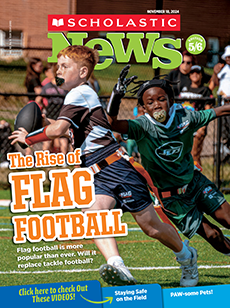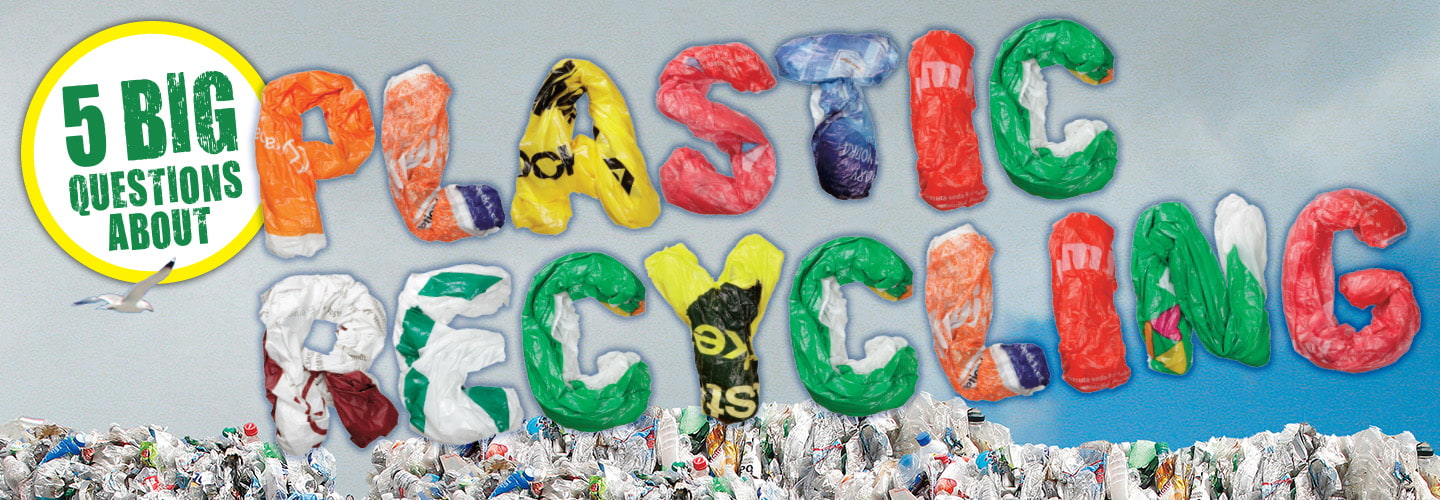Tom Grundy/Alamy Stock Photo
This seagull has plastic trash stuck on its head.
It’s huge! On average, each American tosses 218 pounds of plastic per year. That’s up from about 60 pounds per person in 1980. What’s more, about half the plastic produced today is single-use, meaning it’s used only once before being discarded.
Many of these disposable plastic items never make it into recycling bins or trash cans. Instead, they end up as litter that can get carried into storm drains or rivers that flow to the ocean. Plastic debris can harm marine animals that mistake it for food.

